Can Shih Tzus Eat Hot Dogs?
Shih Tzus are small, adorable dogs that have become popular pets worldwide. Known for their fluffy coats and friendly personalities, Shih Tzus make wonderful companions for individuals and families. They are known for their loyalty, affection, and playful nature, making them a popular choice for both first-time dog owners and experienced pet owners. Shih Tzus are also highly adaptable and can thrive in various living situations, whether it’s a small apartment or a large house with a yard. With their cute looks and lovable personalities, it’s no wonder that Shih Tzus have captured the hearts of so many pet lovers.
Can Shih Tzus eat hot dogs?
As much as we enjoy indulging in a hot dog occasionally, it’s important to consider whether or not it is safe for our furry friends to eat them. When it comes to Shih Tzus, the answer is a bit complicated. While small pieces of plain, unseasoned hot dogs may be an occasional treat, it’s generally best to avoid feeding hot dogs to Shih Tzus for several reasons.
The following factors should be considered:
- High sodium content: Hot dogs typically contain high amounts of sodium, which can harm dogs, especially small breeds like Shih Tzus. Excessive sodium intake can lead to dehydration and other health issues.
- Processed meat: Hot dogs are processed meats, which means they may contain additives, preservatives, and artificial ingredients that are not suitable for dogs’ digestive systems. These ingredients can upset your Shih Tzu’s stomach or cause more severe health problems.
- Choking hazard: Hot dogs are often served in a cylindrical shape, which can present a choking hazard for small dogs like Shih Tzus. The form and texture of hot dogs can easily get lodged in their throat or cause blockages.
While it’s understandable to want to share treats with our furry friends, it’s important to prioritize their health and well-being. Instead of hot dogs, there are plenty of other safe and healthier options for rewarding your Shih Tzu, such as small pieces of cooked chicken, carrots, or dog-friendly treats specifically made for them. It’s always a good idea to consult your veterinarian before introducing new foods into your Shih Tzu diet to ensure their safety and well-being.
Remember, a healthy and balanced diet, regular exercise, and veterinary care are essential for keeping your Shih Tzu happy and healthy.
Shih Tzu Diet:
When it comes to feeding your Shih Tzu, it’s important to understand their nutritional needs to ensure they stay healthy and happy. Shih Tzus are small breed dogs that require a balanced diet to support their overall well-being. Here are some important factors to consider when feeding your Shih Tzu.
Understanding the nutritional needs of Shih Tzus
Shih Tzu have unique nutritional needs due to their small size and specific body structure. It’s crucial to provide them with a balanced diet that includes the following nutrients:
- Protein: Shih Tzus need a diet of high-quality protein sources, such as chicken, beef, or fish. Protein is essential for muscle development and overall growth.
- Carbohydrates: Complex carbohydrates, like brown rice or sweet potatoes, should be included in their diet to provide energy and promote healthy digestion.
- Fats: Healthy fats, such as omega-3 fatty acids, benefit their coat and skin health. You can find these fats in fish oil supplements or foods like salmon.
- Vitamins and minerals: Shih Tzus require a variety of vitamins and minerals to support their immune system and overall health. Fresh fruits and vegetables, like spinach or blueberries, can be added to their diet to provide these essential nutrients.
- Water: Like any other dog, Shih Tzus always needs access to fresh and clean water. Keeping them hydrated is important, especially during hot weather or after physical activities.
Can Shih Tzu eat hot dogs?
While Shih Tzus can eat various human foods in moderation, it’s important to be cautious about what you feed them. Hot dogs, for example, may not be the best option for your furry friend. Here’s why:
- High sodium content: Hot dogs are typically high in sodium, which can be harmful to your Shih Tzu’s health. Too much salt can lead to dehydration and even potentially cause kidney problems.
- Processed ingredients: Hot dogs often contain additives, preservatives, and fillers unsuitable for dogs. These ingredients can be hard to digest and may cause gastrointestinal issues.
- Choking hazards: Hot dogs can pose a choking hazard, especially if not cut into small, manageable pieces. Shih Tzus have small mouths that may struggle to chew and swallow large chunks of food.
Sticking to a balanced and specially formulated dog food for your Shih Tzu is always best. If you want to treat them occasionally, dog-friendly alternatives, such as freeze-dried meats or natural dog treats, are available.
Remember, consult your veterinarian before introducing new foods to your Shih Tzu’s diet to ensure their specific dietary needs are met.
Hot Dogs and Shih Tzus:
When it comes to feeding your Shih Tzu, it’s essential to be mindful of their dietary needs and potential health risks associated with certain foods. Hot dogs, a popular snack enjoyed by many, may seem tempting to share with your furry friend, but there are some factors to consider before doing so.
Ingredients in hot dogs that may be harmful to Shih Tzus:
Hot dogs typically contain various ingredients that may not be ideal for your Shih Tzu’s health. Some of these ingredients include:
1. Sodium: Hot dogs are often high in sodium, which can harm your Shih Tzu’s kidneys and overall health if consumed in large quantities.
2. Additives and preservatives: Hot dogs may contain additives and preservatives such as nitrates, nitrites, and artificial flavorings, which have been linked to health issues in dogs.
3. Processed meat: Hot dogs are processed meats, which may contain low-quality meat and by-products that may not provide the nutrients your Shih Tzu needs.
Risks and potential health issues associated with feeding hot dogs to Shih Tzus
Feeding hot dogs to your Shih Tzu may pose various risks and potential health issues, including:
1. Upset stomach: The high sodium content and additives in hot dogs may lead to digestive issues such as stomach upset, diarrhea, or vomiting in your Shih Tzu.
2. Obesity: Hot dogs are often high in calories and unhealthy fats. Regular consumption of hot dogs can contribute to weight gain and obesity in your Shih Tzu.
3. Sodium toxicity: Excessive sodium intake can be dangerous for your Shih Tzu health and may lead to sodium toxicity, resulting in dehydration, increased thirst, and electrolyte imbalances.
It’s essential to prioritize your Shih Tzu well-being and opt for healthier alternatives that provide the necessary nutrients they need. Consider feeding your furry friend a balanced diet of high-quality dog food, lean meats, and fresh fruits and vegetables.
Remember, it’s always best to consult your veterinarian for personalized advice and guidance if you have any concerns or questions regarding your Shih Tzu diet.
Alternative Treats for Shih Tzus:
When treating your Shih Tzu, it’s important to choose healthy and safe alternatives to keep them happy and nourished. While hot dogs are a popular snack for humans, it’s crucial to consider whether they suit our furry friends.
Healthy and safe treat options for Shih Tzus:
When looking for alternative treats for your Shih Tzu, it’s essential to consider their nutritional needs and potential allergies. Here are some healthy and safe treatment options that you can consider:
- Lean meats: Cooked chicken, turkey, or lean beef can be a tasty and protein-rich treat for your Shih Tzu. Make sure to remove any bones and skin before serving.
- Fruits and vegetables: Many fruits and vegetables are safe for Shih Tzus and can offer essential vitamins and minerals. Some suitable options include apple slices, blueberries, carrot sticks, and green beans. Always remember to remove any seeds or pits that can be harmful.
- Commercial dog treats: There are various dog treats available in pet stores that cater to specific dietary needs. Look for treats made with high-quality ingredients, free from artificial additives and preservatives.
- Yogurt: Plain, unsweetened yogurt can be a healthy and nutritious treat for your Shih Tzu. It contains probiotics that can aid in digestion and promote a healthy gut.
Homemade treats for Shih Tzus:
If you prefer to make treats for your Shih Tzu at home, here are a couple of simple and tasty recipes you can try:
- Peanut Butter Banana Bites: Mix one ripe banana with two tablespoons of peanut butter. Drop spoonfuls onto a baking sheet lined with parchment paper and freeze for a few hours. These frozen treats will be a delight for your furry friend.
- Baked Sweet Potato Chews: Slice a sweet potato into thin strips and bake them at a low temperature until they become crispy. Sweet potatoes are a great source of fiber and vitamins for your Shih Tzu.
Remember, it’s important to introduce new treats gradually and monitor your Shih Tzu for any adverse reactions. Always consult your veterinarian if you have concerns about your Shih Tzu diet or specific treatment options.
Overall, while hot dogs may be a tempting snack, it’s best to stick to healthier alternatives to ensure the well-being of your Shih Tzu. With so many options available, you can find delicious and nutritious treats for your furry friend.
Feeding Guidelines for Shih Tzus:
Proper portion sizes and feeding frequency for Shih Tzus
When feeding your Shih Tzu, it’s important to provide them with the right portion sizes and establish a feeding schedule that suits their needs. Here are some guidelines to follow:
- The recommended portion size for adult Shih Tzus is about 1/4 to 1/2 cups of high-quality dry dog food per day, divided into two meals.
- Conversely, puppies may require more frequent smaller meals to support their growth and development. Consult your veterinarian to determine your Shih Tzu puppy’s appropriate portion sizes and feeding frequency.
- Monitoring your Shih Tzu’s weight and adjusting their portion sizes is important. Overfeeding can lead to obesity, which can have negative impacts on their overall health and well-being.
- Additionally, always provide fresh water for your Shih Tzu to ensure they stay hydrated throughout the day.
Balanced diet recommendations for Shih Tzus:
To ensure that your Shih Tzu receives all the necessary nutrients, it’s essential to provide them with a balanced diet. Here are some recommendations:
- Choose high-quality dog food that is specifically formulated for small-breed dogs. Look for brands that use real meat as the main ingredient and avoid those with fillers and artificial additives.
- Shih Tzus are prone to dental issues, so opt for dry kibble instead of wet food, as it helps promote dental health by reducing plaque buildup.
- Include a variety of protein sources in your Shih Tzu diet, such as chicken, turkey, and fish. This helps ensure they receive essential amino acids for muscle development and overall health.
- Incorporate fruits and vegetables into their diet to provide important vitamins and minerals. However, avoid feeding them toxic foods such as grapes, raisins, onions, and chocolate.
- Consider supplementing their diet with omega-3 fatty acids, which benefit their skin, coat, and joint health. Consult with your veterinarian before adding any supplements to your diet.
Remember, every Shih Tzu is unique, and their nutritional needs may vary. It’s always a good idea to consult your veterinarian for personalized feeding recommendations based on your Shih Tzu’s age, weight, and overall health.
For more information on Shih Tzu nutrition, refer to the Dog Food article on Wikipedia.
Common Human Foods that Shih Tzus Can Eat:
Shih Tzus are small and adorable dogs known for their picky eating habits. While feeding them a balanced and nutritious diet formulated for dogs is essential, some human foods can be safe and healthy for Shih Tzus to enjoy in moderation. Here are some common human foods that Shih Tzus can eat:
- Cooked Chicken: Cooked, boneless, and skinless chicken can be an excellent source of lean protein for Shih Tzus. It should be properly cooked without any seasonings or additives.
- Carrots: Carrots are crunchy and low in calories, making them a great snack for Shih Tzus. They are rich in beta-carotene, which improves their vision and overall health.
- Blueberries are packed with antioxidants and vitamins, making them an excellent choice for a healthy treat for Shih Tzus. They can be served fresh or frozen, but avoid giving them too many at once.
- Pumpkin: Pumpkin is rich in fiber and can help with digestion in dogs. It can be fed to Shih Tzus in small amounts as a treat or mixed with their regular food.
- Plain Yogurt: Plain yogurt is a good source of probiotics and can benefit Shih Tzus’ digestive health. Make sure to choose plain yogurt without any added sugars or artificial sweeteners.
- Salmon: Cooked salmon is a great source of omega-3 fatty acids, which can help promote a healthy coat and skin in Shih Tzus. However, remove any bones and seasonings before feeding them to your dog.
It’s important to note that while these human foods can be safe for Shih Tzus, they should only be given in moderation and as a supplement to their regular diet. Consulting with a veterinarian is also recommended to ensure your dog’s nutritional needs are met.
Benefits of Incorporating Healthy Human Foods into a Shih Tzu’s Diet:
Incorporating healthy human foods into a Shih Tzu’s diet can have several benefits, including:
- Improved nutrition: Adding certain human foods to a Shih Tzu diet can help provide additional nutrients that may be lacking in commercial dog food.
- Variety: Offering various food options can make mealtime exciting for Shih Tzus and prevent them from becoming too picky or bored with their food.
- Dental health: Some human foods, such as carrots, can help clean the teeth and promote good dental health in Shih Tzus.
- Weight management: Certain low-calorie human foods can be used as healthy treats or snacks for Shih Tzus to help manage their weight.
Not all human foods are safe for dogs, and some can be toxic. It’s essential to research and consult with a veterinarian before introducing any new foods into your Shih Tzu diet.
Tips for Feeding Shih Tzus:
Feeding your Shih Tzu a balanced and nutritious diet is essential for their health and well-being. Here are some best practices and food safety precautions to keep in mind when feeding your Shih Tzu:
Best practices for feeding Shih Tzus:
- Choose high-quality dog food: Look for dog food brands specifically formulated for small breed dogs, as they have different nutritional needs than larger breeds. Opt for dog foods that contain real meat as the first ingredient, and avoid those with excessive fillers or artificial additives.
- Follow feeding guidelines: Each dog food brand will have recommended feeding guidelines based on your Shih Tzu’s weight and age. Following these guidelines is important to ensure your furry friend gets the proper amount of nutrients without overeating.
- Monitor portion sizes: Shih Tzus are prone to obesity, so it’s crucial to monitor their portions and avoid overfeeding. Divide their daily food intake into two or three smaller meals to help regulate their metabolism and prevent weight gain.
- Provide fresh water: Always have a bowl of fresh water available for your Shih Tzu to drink throughout the day. Hydration is essential for their overall health and digestion.
- Food safety precautions for Shih Tzu owners
- Avoid feeding human food: While sharing your food with your Shih Tzu may be tempting, it’s important to remember that some human foods can be toxic to dogs. Some common foods to avoid include chocolate, grapes, onions, garlic, and avocados.
- Steer clear of hot dogs: Hot dogs are high in sodium, preservatives, and other additives that can be harmful to dogs. They can also pose a choking hazard due to their size and shape. It is best to avoid feeding hot dogs to your Shih Tzu.
- Be cautious with table scraps: Feeding your Shih Tzu table scraps can lead to digestive issues and weight problems. Additionally, certain foods like bones, fat trimmings, and spicy foods can harm their health. Stick to a balanced dog food diet to ensure they receive all the necessary nutrients.
Remember, it’s always a good idea to consult your veterinarian about the best diet and feeding practices for your Shih Tzu. They can provide personalized recommendations based on your dog’s needs and underlying health conditions.
Final Thoughts on Whether Shih Tzus Can Eat Hot Dogs:
When it comes to feeding your Shih Tzu, it’s crucial to prioritize their health and well-being. While hot dogs may be a tempting treat, it’s essential to consider the potential risks and make an informed decision. Here are some final thoughts on whether Shih Tzus can eat hot dogs:
- Potential Health Risks: Hot dogs are processed meats with high sodium levels, preservatives, and additives. These ingredients can harm your Shih Tzu’s health and may cause obesity, digestive problems, and even pancreatitis.
- Choking Hazard: Hot dogs are often cut into small round slices or served whole. These sizes and shapes can pose a choking hazard to a small breed like the Shih Tzu. It’s essential to avoid feeding them foods that could potentially obstruct their airways.
- Alternative Treats: Instead of hot dogs, plenty of healthier and safer treats are available for your Shih Tzu. Consider options like small pieces of lean-cooked chicken, carrots, apples, or specially formulated dog treats. These alternatives are tasty and provide essential nutrients for your pet.
Key Considerations for Shih Tzu Owners When It Comes to Their Pet’s Diet
When deciding what foods to include in your Shih Tzu’s diet, take into account the following considerations:
- Nutritional Needs: Shih Tzus requires a balanced diet with high-quality proteins, healthy fats, and carbohydrates. Ensure their diet is well-rounded and provides all nutrients for their overall health.
- Dietary Restrictions: Some Shih Tzus may have specific dietary restrictions or food allergies. It’s essential to consult with your veterinarian to determine any particular requirements or foods to avoid.
- Portion Control: Shih Tzus are small and can easily gain weight if overfed. Monitoring their portion sizes and avoiding overfeeding them to maintain a healthy weight is crucial.
- Hydration: Always ensure your Shih Tzu can access fresh and clean water. Hydration is vital for their overall health and well-being.
Remember, every Shih Tzu is unique, and their dietary needs may differ. It’s best to consult your veterinarian for personalized advice and recommendations based on your Shih Tzu’s specific requirements.
Instead of hot dogs, there are plenty of healthier options that you can share with your Shih Tzu. Cooked lean meats, such as chicken or turkey, are a much better choice. These meats provide essential nutrients without the added sodium and preservatives found in hot dogs.
When introducing any new food to your Shih Tzu’s diet, it’s essential to do so gradually and in small portions. Monitor your dog for any signs of an adverse reaction, such as vomiting or diarrhea. If you notice any negative symptoms, discontinue feeding the food immediately and consult your veterinarian.
In conclusion, while it may be tempting to share a hot dog with your Shih Tzu, it’s best to avoid feeding them this processed meat. Opt for healthier alternatives like cooked lean meats instead. Remember, your Shih Tzu’s health and well-being should always be a top priority.
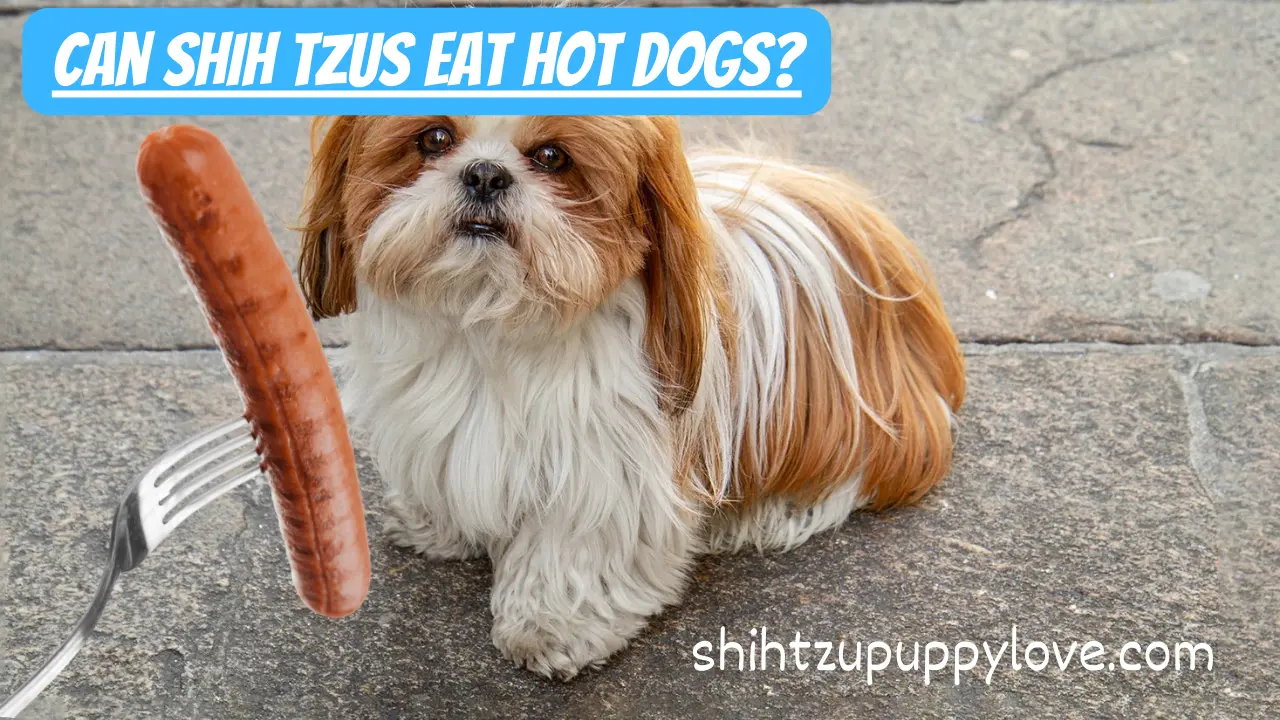


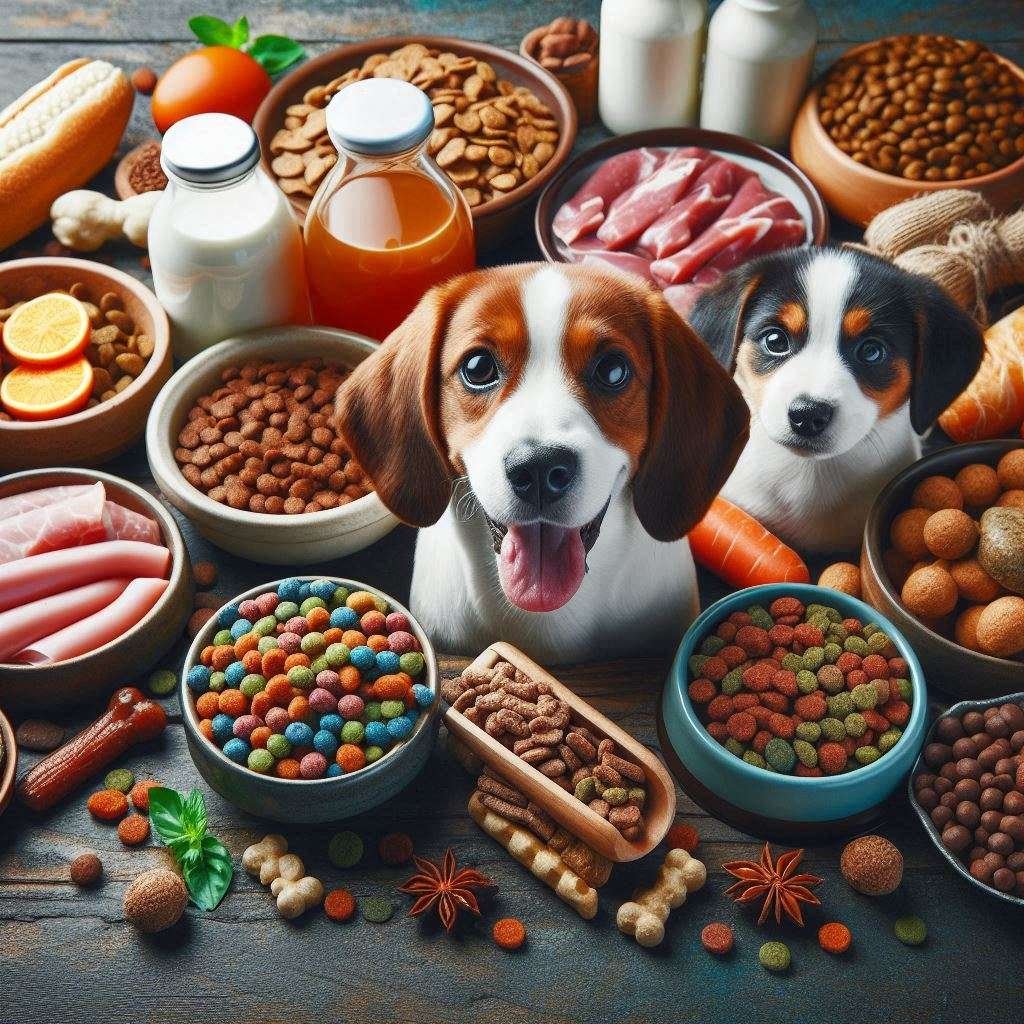
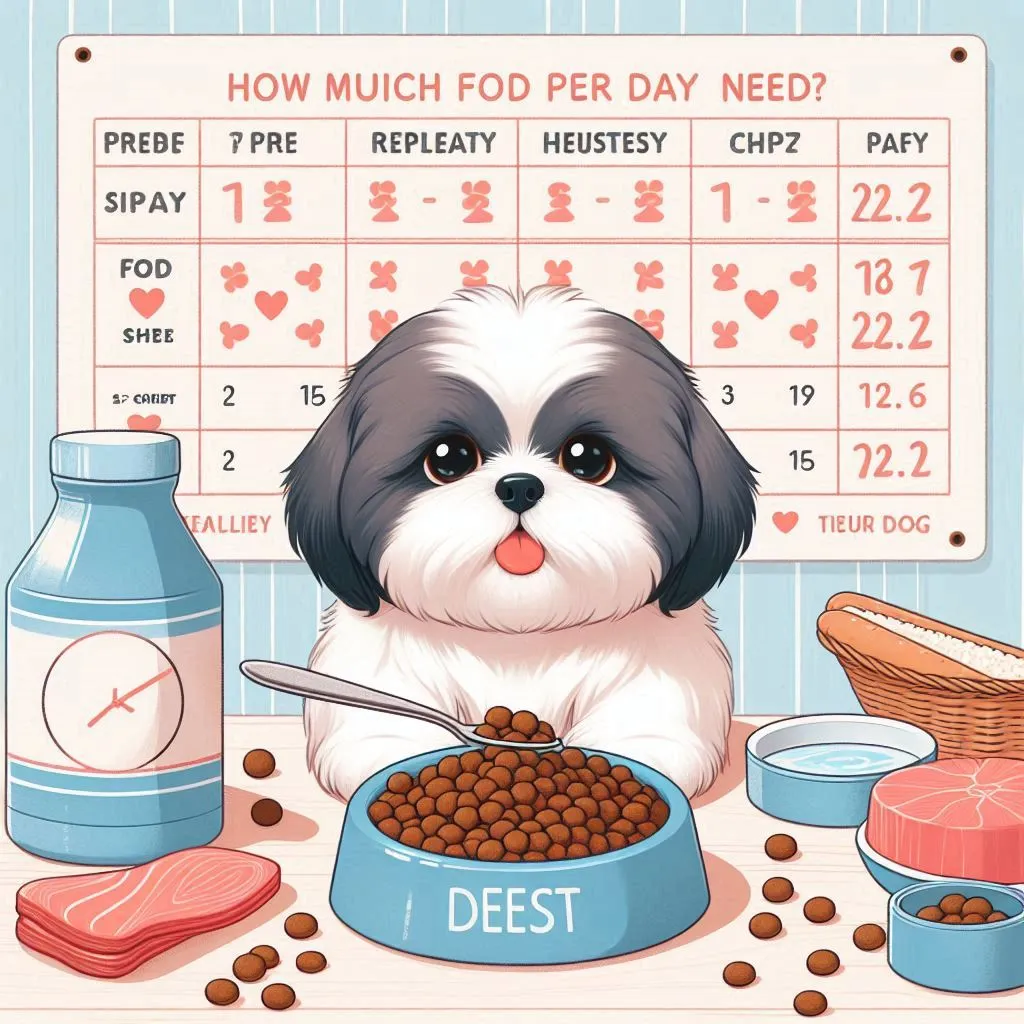



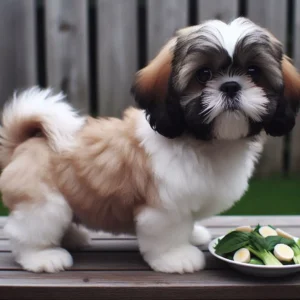
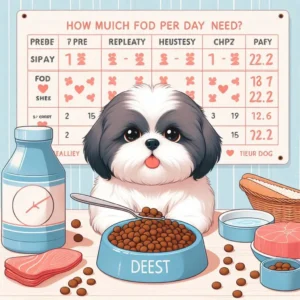




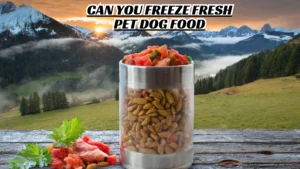
Post Comment